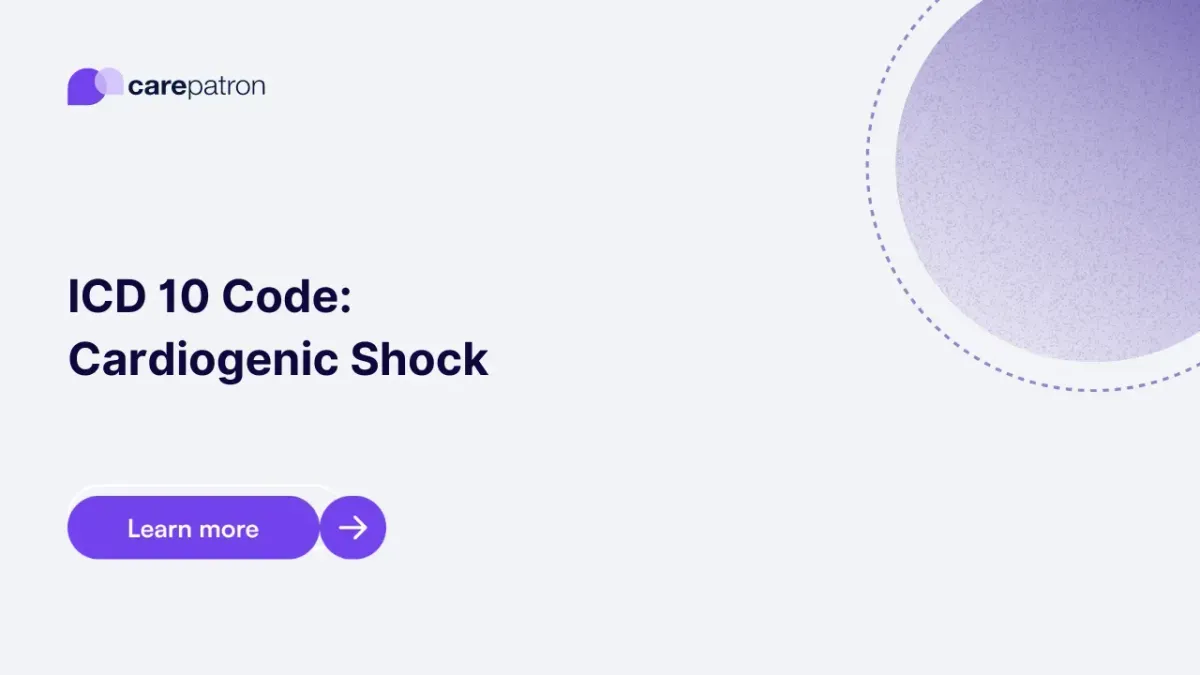
Cardiogenic Shock ICD-10-CM Codes | 2023
Read this short guide to learn about Cardiogenic Shock ICD codes you can use!
Use Code
Commonly asked questions
Yes. A person dealing with cardiogenic shock might have the following symptoms: fast or weak pulse, fast breathing, shortness of breath, lightheadedness, restlessness, chest pain, pressure in the chest, excessive sweating, and moist skin, to mention a few.
The older we get, the more susceptible we become to cardiogenic shock if we’re not careful with our health.
They will treat it by treating the underlying condition that caused it. Suppose blocked coronary arteries are the reason for the decrease in blood flow to the heart. In that case, they might resort to angioplasty, defibrillation, or surgically adding a pacemaker to the body.
Conservative treatment involves taking medicine such as epinephrine and vasopressin.
EHR and practice management software
Get started for free
*No credit card required
Free
$0/usd
Unlimited clients
Telehealth
1GB of storage
Client portal text
Automated billing and online payments
